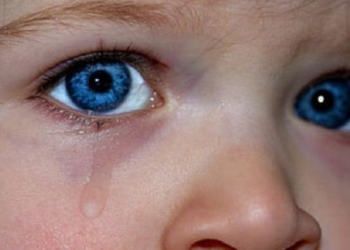During a search for available treatment options for eating disorders, there will be a number of possibilities that arise including outpatient eating disorder treatment. There is no one-size-fits-all way to treat eating disorders in women, but choosing to obtain treatment on an outpatient basis offers a number of advantages. One of the most important of these is the fact that the person comes to an outpatient eating disorder treatment center for a certain amount of time in order to obtain specialized eating disorder counseling and other individualized treatments while still being able to maintain their familial, job and schooling responsibilities.
Look for These Components of High-Quality Outpatient Eating Disorder Treatment
1) Day and Evening Options
A high-quality treatment option for eating disorders offers choices that fit into a women's schedule. Some women with eating disorders find that a day treatment program allows them to be at home with their families in the evening. Others, however, need to attend school during the day or hold down a job so the option of attending an evening outpatient program is appealing to them.
2) Individualized Treatment Plan
While an outpatient eating disorder treatment center might provide the same list of options for treatment to all of their clients, not everyone will complete them at the same time or at the same pace. Creating an individualized treatment plan involved acknowledging that each woman has their own goals to meet before progressing further in treatment.
3) Eating Disorder Counseling
A variety of eating disorder counseling options allows a client to fully examine the beliefs and thought processes that fuel eating disorders in women. For most people, this comprises a combination of individualized counseling sessions with a master's or doctorate-level therapist, as well as group therapy sessions.
4) Therapeutic Groups
Therapeutic groups, such as those devoted to mindful eating, relapse prevention, and body image are important treatment options for eating disorders. They allow women to examine beliefs and develop coping skills in a supportive and peer-focused environment that facilitates healing and growth.
5) Food Focused Environment
Food seems to be the elephant in the room when it comes to treating eating disorders in women. Tiptoeing around its presence or outright avoiding it altogether is nearly impossible and could even be counterintuitive. After all, everyone needs to experience and interact with food in order to survive.
A notable component of outpatient eating disorder treatment is the many ways in which food is incorporated naturally into each day. For example, a registered dietitian works weekly with clients to provide individualized nutrition therapy to meet their needs. Other activities focused on food might include cooking classes that are piratical and that demonstrate techniques they can take home with them.
Supported meals, restaurant visits, and grocery store outings provide real-world experiences that offer two benefits to clients. They help clients navigate these often-tricky social experiences in a way that is supportive. These real-world experiences also provide exposure to food in a setting that helps guide and support the clients every step of the ]way so they experience success, hope, and recovery.
Oliver-Pyatt Center provides a warm, supportive and medically-grounded option for outpatient eating disorder treatment. By providing thorough management of both psychiatric and medical conditions, the highest level of care found outside of a hospital setting and daily exposure therapy, Oliver-Pyatt Centers offer a psychologically gentle and accepting environment for clients to heal and recover from eating disorders in women. Reach out to them today to learn more about how their treatment options for eating disorders.













